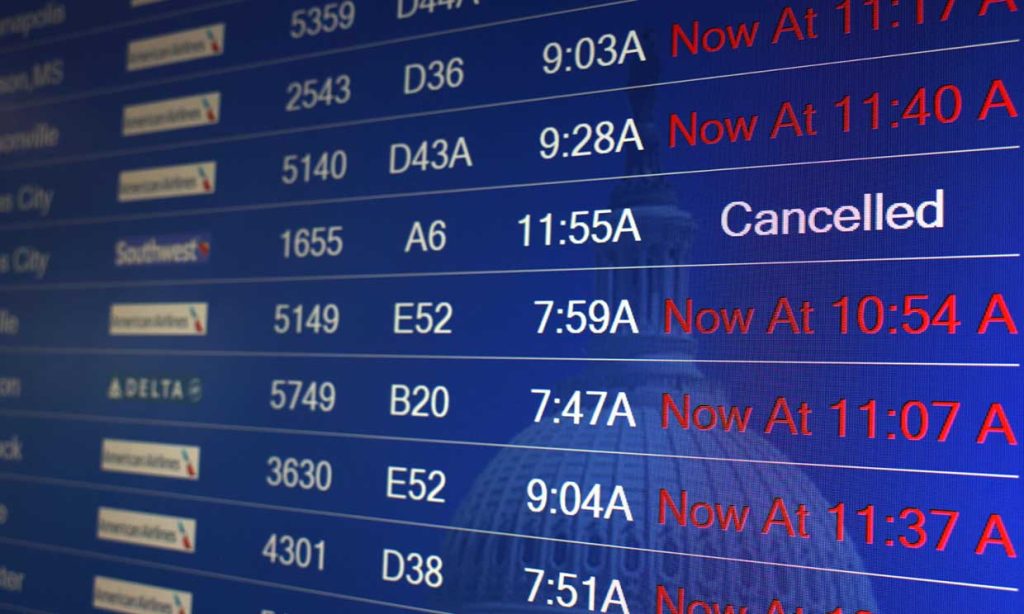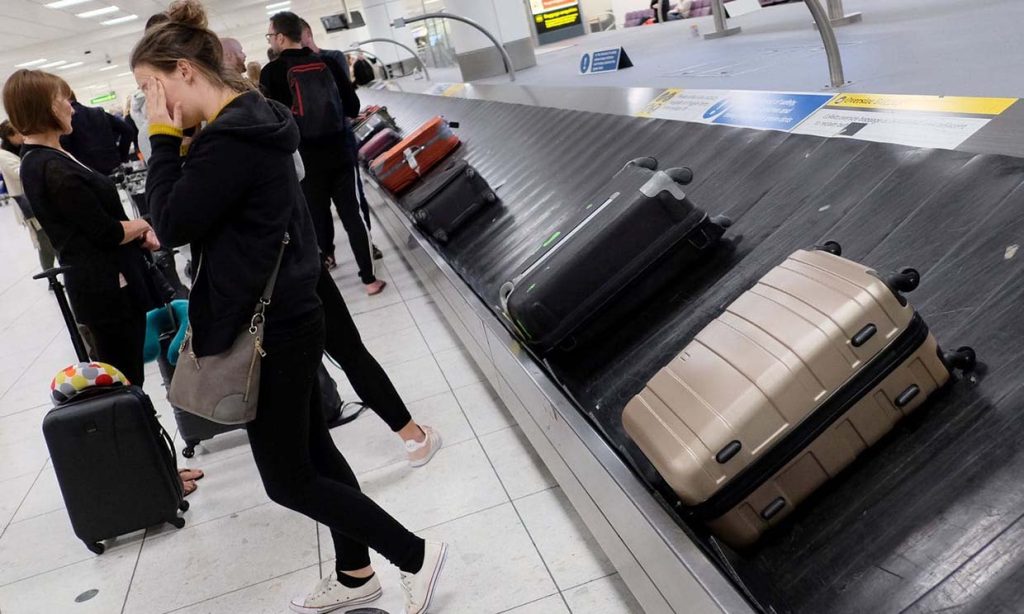When planning a trip to Phoenix, Arizona, in the United States, besides arranging transportation, accommodation, and sightseeing, there is one crucial but often overlooked factor — travel insurance. Whether you’re visiting Phoenix for the first time or are a frequent traveler, purchasing the right travel insurance can provide you with a wide range of coverage, ensuring your journey is smooth and secure. I’ll cover all the basics of travel insurance for Phoenix, including medical insurance, flight cancellation insurance, lost luggage insurance, and other common coverage types. It’ll also explain why every traveler to Phoenix should consider purchasing travel insurance.
1. Why Every Traveler to Phoenix Should Purchase Travel Insurance?
The uncertainties of travel are unavoidable. Whether it’s a flight delay, sudden weather changes, health issues, or other unforeseen events, travel insurance provides all-around protection. For destinations like Phoenix, travel insurance is even more critical. Here are several key reasons why every traveler to Phoenix should invest in travel insurance:
1.1 Medical Coverage
Although Phoenix is generally a safe city, travelers can experience accidental injuries or sudden illnesses during their trip. If you fall ill or get hurt while traveling, medical expenses can be very high, especially in the U.S., where healthcare costs are expensive. Travel insurance provides emergency medical assistance and reimbursement for medical expenses, ensuring you can receive timely medical help without worrying about sky-high bills.
1.2 Flight Cancellation and Delay Coverage
Flight cancellations or delays are common travel mishaps, especially due to adverse weather or airline operational issues. If a cancellation or delay causes you to miss a connecting flight, important activities, or results in additional accommodation and meal expenses, travel insurance can provide compensation. Flight cancellation and delay coverage allows you to receive financial compensation, easing the burden caused by flight disruptions.
1.3 Baggage Loss or Damage Coverage
Losing or damaging luggage while traveling can be a headache. Whether due to airline errors or mishandling during transport, luggage loss or damage is not uncommon. Travel insurance’s baggage coverage can help you get compensated in case of lost or damaged baggage, reducing the inconvenience and loss caused by missing valuable items.
1.4 Personal Property Protection
In addition to baggage protection, travel insurance typically covers personal property. For example, if your personal belongings are stolen or lost during your trip, travel insurance can help compensate for the loss. While many hotels and airlines provide some level of protection for your belongings, travel insurance offers more comprehensive coverage, ensuring you don’t have to worry about your valuables during your travels.
1.5 Emergency Assistance for Unexpected Events
Unforeseen events, such as natural disasters, terrorist attacks, or violent crimes, can occur during your travels. In such cases, travel insurance often provides emergency assistance services, including evacuation and medical transport, ensuring your safety and timely help in times of crisis.
2. Types of Phoenix Travel Insurance
Understanding the different types of travel insurance is the first step in choosing the right coverage. Here are some common types of travel insurance that can provide different levels of protection during your trip to Phoenix:
2.1 Medical Insurance
Travel medical insurance is one of the most basic and essential forms of coverage, especially for international travel. Medical costs in the U.S. can be very high, and without insurance, even a simple emergency visit could lead to an enormous bill.
Medical insurance typically covers:
- Emergency Medical Expenses: If you suffer an injury in Phoenix, the insurance will cover related medical costs, including doctor visits, hospital stays, surgeries, and more.
- Medical Evacuation: If you need to be transferred to another medical facility urgently, the insurance will cover costs for ambulances or air evacuations.
- Emergency Dental Care: If you experience dental issues during your trip, travel medical insurance often covers emergency dental treatments.

2.2 Flight Cancellation and Delay Insurance
Flight cancellations and delays are unpredictable, especially during adverse weather conditions or issues with the airline. Flight cancellation and delay insurance can help mitigate the financial impact of these events.
Flight cancellation and delay insurance typically covers:
- Compensation for Cancellations or Delays: If your flight is canceled or delayed beyond a certain period, the insurance company will cover additional accommodation, meals, and transportation expenses.
- Compensation for Missed Connections: If a delayed or canceled flight causes you to miss a connecting flight, the insurance will reimburse the additional costs incurred.
2.3 Baggage Loss and Damage Insurance
Luggage loss or damage is common in long-distance travel. Whether it’s due to airline mishandling or transport issues, luggage may not arrive on time, or it could be damaged. Baggage insurance provides coverage in these situations.
Baggage loss and damage insurance typically includes:
- Compensation for Lost Luggage: If your luggage is lost during the trip, the insurance company will compensate you based on the insurance amount.
- Compensation for Damaged Luggage: If your luggage is damaged during transport, the insurance will reimburse you for the damaged portion.
- Compensation for Delayed Baggage: If your luggage is delayed in reaching your destination, the insurance will provide compensation to help you through the inconvenience.
2.4 Trip Cancellation Insurance
Trip cancellation insurance protects you against financial losses if you need to cancel your trip before departure due to unforeseen circumstances, such as health problems or family emergencies.
Trip cancellation insurance typically covers:
- Compensation for Cancellation Fees: If you need to cancel your trip due to unavoidable circumstances, the insurance will cover any pre-paid hotel, flight, or other related costs.
- Emergency Illness or Injury Insurance: If an unexpected illness or injury prevents you from traveling, the insurance will provide compensation.
2.5 Personal Property Insurance
Personal property insurance protects against theft or loss of personal items while traveling. This is important in case your belongings are lost or stolen.
Personal property insurance typically covers:
- Theft Compensation During Travel: If your belongings are stolen during the trip, the insurance will reimburse you for the loss.
- Compensation for Damaged Property: If your electronics or valuable items are damaged during travel, the insurance will cover the loss.
3. How to Choose the Right Phoenix Travel Insurance?
3.1 Understand Your Needs
Choosing the right travel insurance starts with understanding the specific needs of your trip. The type of travel insurance you select should align with the activities you plan to do, the length of your stay, and who you are traveling with. For example, if you’re traveling to Phoenix with your family, you may need a plan that covers not only emergency medical care but also trip cancellations, lost baggage, and flight delays. If your journey includes adventure activities like hiking, biking, or visiting national parks, you might require additional coverage for medical emergencies or evacuation in remote areas. A more comprehensive plan could also include coverage for missed connections or trip interruption if your plans suddenly change. On the other hand, if you’re traveling solo or on a business trip, your coverage may be more focused on medical expenses, flight disruptions, and theft protection.

3.2 Compare Different Insurance Providers and Plans
Not all travel insurance policies are created equal, and the differences in coverage and pricing can be significant. Many insurance companies provide varying packages with different levels of protection, and it’s important to shop around. Start by using comparison websites that allow you to compare policies based on coverage details, costs, exclusions, and customer reviews. Take time to review the specifics of each plan—some may include extras like coverage for missed events or cancellation due to job loss, while others may not. It’s also a good idea to read the fine print to understand exclusions (such as pre-existing conditions or high-risk activities) and additional charges that may apply. Consulting directly with the insurers for clarification can also help you make an informed decision.
3.3 Check the Insurance Company’s Claim Policy
Before purchasing a travel insurance policy, it’s essential to fully understand the insurer’s claims process. Make sure the claims policy is clear and straightforward. Look for details about what documentation is required to file a claim, such as receipts, police reports, or medical records, and the typical timeline for processing claims. Some insurance providers may offer 24/7 customer service to assist with claims, which can be particularly valuable if you encounter an emergency during your trip. Additionally, check whether the company has a history of quick and efficient claims resolution by reviewing customer feedback and ratings. A reliable insurer with good customer support will help ensure you don’t face unnecessary delays or confusion in the event you need to file a claim.
Travel insurance is an essential tool for every traveler heading to Phoenix. Whether it’s medical coverage, flight cancellations, baggage loss, or other travel-related emergencies, travel insurance provides effective protection. By choosing the right travel insurance, you can travel with peace of mind, fully enjoying the beauty and attractions of Phoenix. Therefore, ensure that you purchase the appropriate travel insurance before you set off, safeguarding your trip and minimizing the impact of any unexpected situations on your experience.